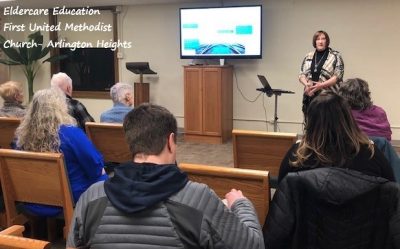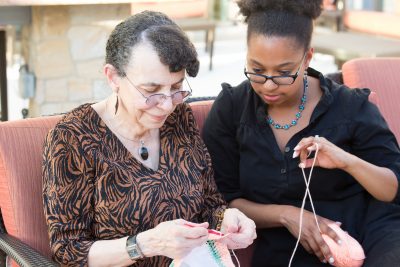 Family educational programs that are fun and engaging could help ease frustrations and tensions LTC providers experience with family members.
Family educational programs that are fun and engaging could help ease frustrations and tensions LTC providers experience with family members.
I read with interest an article by Martie Moore in McKnights Long Term Care News, “Truth-Telling for True Transparency: Why Does it Matter to your Organization.”
Her research occurred with parents faced with losing a child. Two findings in her study resonate.
Family members are less likely to sue when they understand what is happening to their loved ones. They are also far more willing to give the care providers grace and forgiveness. In contrast, families create their own version of what occurred when information is withheld. Consequently, these opinions are difficult to turn around.
Dementia Out of the Darkness for Families
These research findings led me to think about how much effort Long Term Care providers should put into family education about the effects of dementia.
An article in the Journal of Applied Gerontology cites that family members with loved ones in a nursing home expressed the need for more education and support for involvement within the nursing home setting.
Dementia is perplexing and complicated. No two people are identical in the way dementia strikes and plays out. Therefore, being transparent with family members about the myriad of realities living with dementia could prove helpful.
Being accused of neglect with statements like, “my mother has not eaten in three days.” is troubling. In addition, how many times have we heard, “someone stole all my mother’s clothes” only to find them shoved under the bed mattress?
Topics for family education
- The impact of memory loss on day to day living
- Common behaviors in persons with dementia
- Helpful communication techniques
- Can there be Joy with dementia?
- Well-being and Ill-Being
Consider offering a dementia workshop/R&R afternoon for family members. To that end, a rotation of educational sessions interspersed with opportunities for a massage, manicure, chocolate, pet therapy, fancy coffee, more chocolate, support, fun, and mutual support could go a long way!
I encourage long term care providers to explore opportunities to educate families about the realities of living with dementia. In doing so, we might be able to improve relationships and decrease difficulties driven by a lack of understanding.
 Julie has worked in Aging Services for over 30 years and has been a Licensed Nursing Home Administrator since 1990. She is a Certified Master Trainer with the AGE-u-cate Training Institute. Through her company Enlighten Eldercare, Julie provides training and educational programs on elder caregiving for family and professional caregivers. In addition, she is an instructor and the Interim Director of Gerontology at Northern Illinois University and lives in the Chicago Northwest Suburb of Mount Prospect, IL.
Julie has worked in Aging Services for over 30 years and has been a Licensed Nursing Home Administrator since 1990. She is a Certified Master Trainer with the AGE-u-cate Training Institute. Through her company Enlighten Eldercare, Julie provides training and educational programs on elder caregiving for family and professional caregivers. In addition, she is an instructor and the Interim Director of Gerontology at Northern Illinois University and lives in the Chicago Northwest Suburb of Mount Prospect, IL.


 On the brink of a new decade, I contemplate what the next ten years will look like for the aging services industry. Reflecting on the past provides me some hope for the future. In some respects, we have come a long way. By the same token, we should maintain a future focus and continue to develop more strategies that support the quality of living of frail elders.
On the brink of a new decade, I contemplate what the next ten years will look like for the aging services industry. Reflecting on the past provides me some hope for the future. In some respects, we have come a long way. By the same token, we should maintain a future focus and continue to develop more strategies that support the quality of living of frail elders.